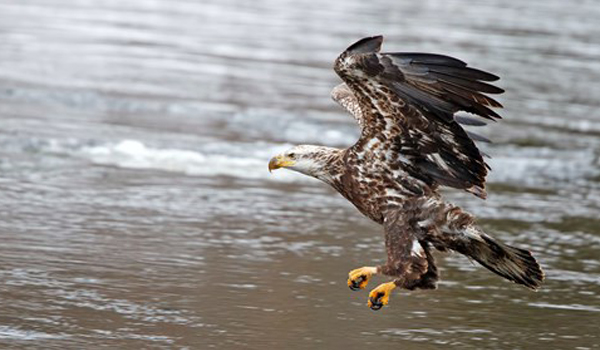Wildlife crime in Scotland down by 23 per cent
Wildlife crimes in Scotland fell by nearly a quarter according to the latest figures published by the Chief Statistician on Friday (February 28).
Wildlife offences recorded by Police Scotland were down by 23 per cent from 286 in 2021/22 to 220 offences 2022/23, bringing recorded crimes back close to pre-pandemic levels.
Much of the decrease in 2022/23 related to a reduction in ‘other wildlife offences’, which had included many recorded crimes in 2021/22 related to Operation Tantallon – a police operation that targeted the theft and illegal sale of wild peregrine falcons.
The statistics also contain data on Crown Office and Procurator Fiscal Service (COPFS) cases, criminal proceedings and scientific evidence and intelligence.
More than half of all recorded wildlife crimes were categorised as either offences involving birds (31 per cent) or fish poaching (25 per cent).
The Police Scotland divisions with the highest recorded wildlife offences in 2022/23 were the Highlands and Islands (35), the Lothians and Scottish Borders (32) and the North East (31).
The COPFS received 63 cases in 2022/23 relating to wildlife crime (which may include more than one offence per case), with fish poaching being the most common category (30 cases). Of these 63 cases, 37 (59 per cent) received an alternative to prosecution, for example, a fine, 15 (24 per cent) were prosecuted, and 11 (17 per cent) resulted in no action.
Criminal proceedings statistics for 2022/23 show that 36 people were proceeded against for wildlife crimes – a substantial increase from 2021/22 (20 people) and 2020/21 (two people), which had been impacted by court closures and reduced capacities.
Scotland’s Chief Statistician noted: “When a wildlife crime is suspected, the first step is for it to be reported to the police (or detected by the police), and then recorded.
“Further steps may include investigation to assess whether the recorded crime should be part of a case submitted to the COPFS and then a decision on whether there is sufficient evidence for the case to be prosecuted.
“Ultimately a court case may result in a conviction or acquittal. All these stages may be supported by relevant scientific evidence and intelligence.
“This report presents statistics relating to 2022/23 for the various stages described above. Although these sets of statistics are related, direct comparisons between them cannot be made due to differences in data sources, timing and the bases on which statistics were collated.
“For example, several recorded crimes may be included in one COPFS case (involving multiple sources of scientific evidence), and subsequent criminal proceedings may occur in a different year.


